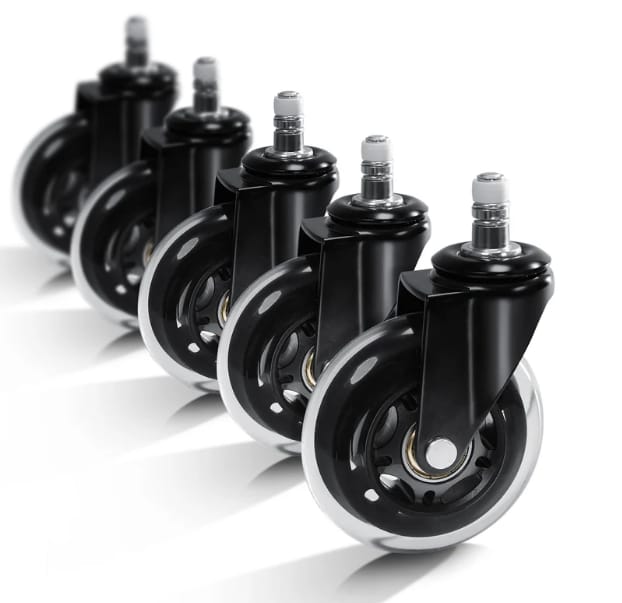In our modern world of consumer convenience, the accumulation of goods—both useful and obsolete—happens quickly and often unnoticed. As we continue to acquire items in our homes and businesses, storage spaces become crowded, workspaces get cluttered, and eventually, entire rooms may be overtaken by items that serve no immediate purpose. While acquiring is easy, disposing responsibly is a growing challenge.
This is where the importance of organized waste management and structured decluttering comes into play. Beyond just tossing things into a trash bag, the act of removing junk has evolved into a more thoughtful, sustainable, and essential process that addresses health, environmental, and efficiency concerns in both residential and commercial settings.
Let’s explore the full impact of clutter, the benefits of proper disposal practices, and how structured services can make a meaningful difference in everyday life.
The Psychology of Clutter
It’s often said that your surroundings reflect your state of mind. Scientific studies support this idea, showing a direct connection between cluttered environments and elevated levels of stress and anxiety. A disorganized space can make it difficult to concentrate, increase cortisol levels, and even interfere with sleep quality.
Clutter overloads the senses. When every surface is covered, and drawers are overflowing, our brains must constantly process visual and physical distractions. This can lead to decision fatigue, procrastination, and a general sense of overwhelm. In workplaces, it can hurt productivity and morale. In homes, it can create tension between family members and contribute to a lack of harmony.
Decluttering is more than tidying up—it’s about creating space for mental clarity, productivity, and emotional well-being. However, as we attempt to regain control, we often find that simply organizing or rearranging isn’t enough. Items must be removed completely.
The Rising Demand for Organized Waste Solutions
As people become more aware of the need to manage waste effectively, the demand for structured solutions has grown significantly. Gone are the days when a few trash bags at the curb would solve the problem. Now, people want—and need—comprehensive options that address all aspects of removal, including recycling, donation, and ethical disposal.
Modern waste solutions take into account more than just convenience. Environmental responsibility has become a driving force in the decision-making process. Items such as electronics, batteries, and certain plastics cannot be thrown away like ordinary trash. Likewise, furniture, appliances, and materials like drywall or metal require specific disposal or recycling methods.
These growing complexities have created the need for services that are knowledgeable, compliant, and efficient. For homeowners facing a renovation or cleanout, and for businesses dealing with seasonal purges or relocations, partnering with a reliable service becomes crucial.
How Clutter Affects Functionality
Beyond aesthetics and psychology, clutter physically impacts how spaces are used. In homes, it can block access to closets, basements, and garages. In businesses, it can crowd inventory rooms and restrict operations. In industrial environments, it can become a safety hazard.
Having unnecessary items in your environment reduces efficiency. You may spend more time looking for things, navigating around obstacles, or even repurchasing items because you’ve forgotten you already own them. In offices, cluttered desks and storage areas can inhibit workflow and make collaborative tasks more difficult.
When a space becomes unmanageable, it’s not just inconvenient—it’s counterproductive. Whether it’s a home office full of paperwork or a warehouse cluttered with broken pallets, each item that has outlived its usefulness is occupying space that could serve a better purpose.
The Environmental Impact of Irresponsible Disposal
Every year, millions of tons of waste are sent to landfills. A significant percentage of this waste could have been recycled or repurposed. Poor waste management practices contribute to environmental pollution, loss of natural resources, and increased greenhouse gas emissions.
Items such as electronics contain hazardous materials like lead, mercury, and cadmium. When improperly disposed of, these substances can leach into the soil and water, causing long-term damage to ecosystems and human health. Furniture and textiles often contain synthetic fibers and chemicals that do not break down naturally.
Choosing responsible disposal methods isn’t just a good idea—it’s a necessity for environmental sustainability. Recycling helps conserve resources, reduce the need for raw material extraction, and lower energy consumption. Donating usable items extends their life and supports communities in need.
This is why services that specialize in structured removal are so valuable. They help bridge the gap between getting rid of unwanted items and ensuring those items are processed appropriately.
Redefining Junk as Opportunity
What many people see as “junk” may actually hold value. Items such as gently used furniture, kitchenware, toys, clothing, or office equipment can be donated and reused. Broken appliances can often be disassembled for parts, and materials like scrap metal, glass, and some plastics can be recycled.
Shifting the perspective from waste to resource changes the way we approach disposal. Instead of focusing on what needs to go away, we can start thinking about what could be reused, repurposed, or recycled.
Communities benefit when discarded items are redirected. Charities receive goods they can distribute or resell. Local businesses and recyclers gain access to raw materials. And the burden on landfills is reduced.
This shift not only supports sustainability but also creates economic opportunity. It turns a waste problem into a value chain—where what once served no purpose becomes a part of something new.
Professional Support Makes a Difference
The logistics of clearing out large or complicated spaces can be overwhelming. That’s why hiring trained professionals is often the most efficient and stress-free solution. These teams have the tools, experience, and systems in place to handle everything from single-item pickups to full-scale estate cleanouts.
They assess the job, sort items, and load and haul everything safely. More importantly, they know how to properly dispose of or redirect materials according to best practices. This reduces the risk of injury, ensures compliance with local laws, and contributes to a more organized, environmentally responsible process.
Efficiency, safety, and peace of mind—these are the core benefits that come from letting professionals manage the task.
One of the most accessible ways to begin decluttering is by contacting a reputable Junk Removal service. Whether it’s a spring clean, post-renovation purge, or moving cleanout, these services help simplify a process that might otherwise take weeks to complete.
A Future-Oriented Approach to Waste
As society moves toward more sustainable living, waste management practices must evolve as well. This includes minimizing consumption, increasing the reuse of materials, and ensuring that discarded items are treated as potential resources.
It also means greater accountability in how we dispose of goods. Regulations are tightening. Consumers are becoming more informed. Businesses are expected to act responsibly. And services are adapting to meet these demands with smarter, greener solutions.
Modern Junk Removal services represent the future of this shift. They combine convenience with environmental awareness and offer solutions that align with the values of today’s consumers.
By choosing ethical waste removal over quick-and-dirty disposal, individuals and companies alike contribute to a cleaner, more sustainable future.
Simplifying Life by Clearing Space
At its core, the process of letting go of unwanted things is liberating. It allows people to reclaim their space, refocus their energy, and make room for what truly matters—whether that’s peace of mind, a new chapter in life, or simply better use of space.
In homes, it creates comfort and functionality. In businesses, it fosters efficiency and professionalism. In communities, it encourages reuse and reduces environmental strain.
That’s why making time for a deep clean—and getting support where needed—isn’t a luxury, but a valuable investment in the quality of life.
Professional Junk Removal is not just about hauling things away. It’s about intentional living, better resource management, and designing spaces that support well-being and growth. The benefits are tangible, immediate, and lasting.


